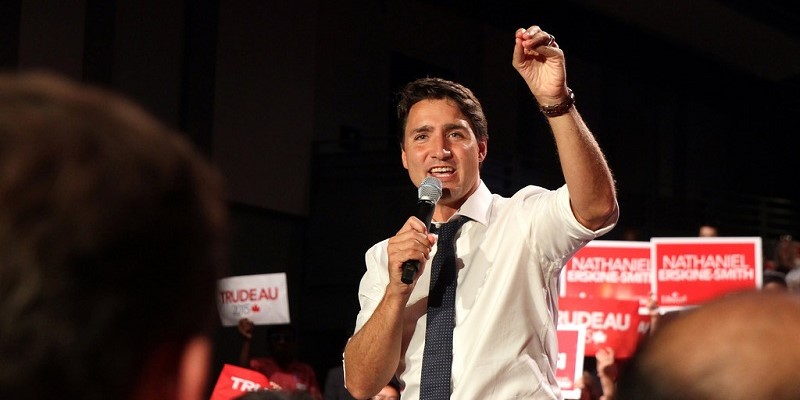Ottawa’s ‘just transition’ relies on future historic technological breakthroughs

The Trudeau government has coined a new phrase “just transition” to encapsulate and sell a number of regulatory initiatives Ottawa is imposing on Canada’s economy and eventually Canadians in the pursuit of a “net-zero” greenhouse gas economy. What’s not stated clearly though, is that without significant technological breakthroughs, these measures will lower Canadian living standards, which is the opposite of what’s being promised.
It’s worth noting that Canada is already expected to perform worst among 17 industrialized countries in terms of living standard increases over the next 40 years.
Like many western countries, Canada is aggressively pursuing a transition away from fossil fuels towards renewable energies such as wind and solar power through government investments and regulations. But at any given moment in any economy, there are limited resources (including technologies) available to satisfy the needs and aspirations of the people. When Ottawa allocates significant resources to initiatives that can only work if a series of uncertain and unpredictable technological breakthroughs are achieved, the government risks reducing the well-being of Canadians, particularly lower- and middle-income families.
Specifically, the government’s “just transition” can only work if there are enormous breakthroughs in electricity storage technology (including advanced batteries), which have not yet emerged and that some observers are skeptical can be achieved. The need for this storage ability is self-evident—the wind doesn’t always blow and the sun doesn’t always shine. Thus, without massive capacity to store excess energy when the wind blows and the sun shines, power systems require back-up sources of energy, which significantly increase costs (i.e. use up more resources). Without historic breakthroughs in storage technology, more resources will be used to deliver the same levels of energy currently enjoyed from traditional sources, but at higher costs.
This risk is not theoretical. Consider the massive increases in energy prices in Europe pre-dating Russia’s invasion of Ukraine. European countries underinvested and even scuttled traditional energy sources such as coal and nuclear power systems and replaced them with wind and solar. Prices then predictably spiked when demand increased for back-up sources of energy such as natural gas, which had insufficient capacity. Put simply, wishful thinking about energy cannot evade the ironclad laws of supply and demand, and Europeans are now suffering marked reductions in their well-being because of the energy folly, which Canada is replicating.
Similarly, the regulations Ottawa is promulgating to force a complete transition to electric vehicles (EVs) is premised not only on improvements in battery technology but also some unidentified large-scale expansion in Canada’s ability to generate and deliver sufficient new electricity and charging capability. Ottawa is simultaneously limiting growth in electricity generation from traditional sources while increasingly relying on intermittent sources such as wind and solar without explaining how the massive increases in electricity needed to support widescale EV use will be generated.
Again, these risks are not theoretical. Consider California, which is ahead of Canada in implementing energy transition policies. In the fall of 2022, in the middle of a heatwave, California Governor Gavin Newsom was forced to encourage citizens to limit charging of EVs and the use of air conditioners because the state lacked the capacity to generate sufficient electricity.
There are other examples with similar risks but it’s perhaps more important to understand the economic redundancy of Trudeau’s policies. Again, Ottawa is explicit—these policies are premised on technological breakthroughs. But if these breakthroughs occur, we’ll experience a natural transition as people move from higher cost energies to lower cost. This is the history of energy. So if said breakthroughs materialize, the Trudeau “just transition” will have been nearly completely redundant and wasteful. If, however, these breakthroughs do not occur, Canadians will be poorer and suffer a lower standard of living.
At the very least, the Trudeau government should be clearer and more transparent about the risks it’s imposing on Canadians today and in the future.
Authors:
Subscribe to the Fraser Institute
Get the latest news from the Fraser Institute on the latest research studies, news and events.


